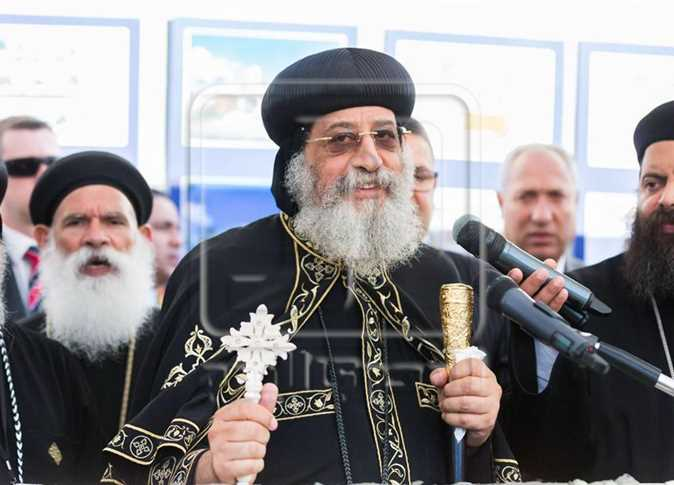
Deir al-Sultan Monastery in Jerusalem is part of the Coptic Orthodox Church’s property in the Holy Land, as it is one of the church’s monasteries outside Egypt, the Coptic Orthodox Church said in a statement, refraining from responding to a statement by the Ethiopian Coptic Church where it accused the Egyptian Church of counterfeit.
The monastery’s buildings and its components indicates its identity, it added.
“As for the statement of the Ethiopian Orthodox Tewahedo Church regarding Deir al-Sultan, issued on November 5, we refrain from responding to the unjust accusations, insults, and historical errors concerning the ownership and possession of the Coptic Deir al-Sultan,” the church said in the statement.
“We would like to thank all those who contributed to the preservation of the Egyptian Coptic identity of Deir al-Sultan, and we appreciate the role of the Egyptian government…in preserving this Coptic monastery as an Egyptian territory,” the statement read.
“We thank God that the ruling of the Israeli Magistrate Court of October 28 on the restoration of Deir al-Sultan confined restoration work to dangerous places only within the Church of the Angel Michael and stipulated that it be under the supervision of a certain engineer from the Coptic Orthodox Church,” said the church.
Deir al-Sultan is adjacent to the Patriarchate of the Coptic Orthodox, Antonine College, and the rest of the property of the church in the area, said the statement, adding that Egyptian Coptic monks have been keen to be present at the monastery, despite repeated attempts by Ethiopian monks to seize the monastery for hundreds of years.
Every time, court rulings came in favor of the Coptic Orthodox Church, the statement said.
The Coptic Orthodox Church is a scriptural church and deals with controversial issues with the spirit of love and peace. “We pray to God that peace prevails throughout the world, especially in the Holy Land,” the statement concluded.
The Ethiopian Orthodox Tewahedo Church issued a statement on November 5 claiming the ownership of Deir al-Sultan, citing scriptural evidence and tax records.
The monastery is about 1,800 square meters. It was returned to Coptic Christians by Salah Eddin al-Ayoubi after he defeated the Crusaders. It has been known since as Deir al-Sultan, said member of the Melli Council of the Saint Mark Coptic Orthodox Cathedral Mohsen George in an earlier statement to Al-Masry Al-Youm in October.
Deir al-Sultan is of particular importance to Coptic Christians because it is their direct way to get from the Monastery of St. Anthony, where the headquarters of the Egyptian Patriarchate lies, to the Church of the Holy Sepulcher, according to George.
George said that the Egyptian Church hosted Ethiopian monks in Deir al-Sultan for over three centuries. The Ethiopian monks attempted over the years to take advantage of any tension between Egypt and foreign authorities that supervised the monastery, including the Turkish, British and Jordanian authorities, in order to take control of the monastery, said George.
The Ottoman Sultan Abdul Hamid had ruled that the monastery belonged to the Coptic Orthodox Church.
During the War of Attrition, Ethiopian monks coordinated with the Israeli occupation authorities and expelled Egyptian monks from Deir al-Sultan in April 1970, after which the Egyptian Archbishop of Jerusalem filed a lawsuit with the Supreme Court of Israel to restore the monastery.
On March 16, 1971, the Israeli Supreme Court condemned the Israeli government after the attacks on the Coptic clergymen were proved, and it returned the monastery to the Orthodox Church. Another ruling by the same court issued on January 9, 1979 ordered the handover of the monastery to the Egyptian Orthodox Church, according to George.
On Wednesday, October 24, Israeli occupation forces arrested a monk among participating in a protest organized by the Coptic Orthodox Patriarchate in Old Jerusalem along with a number of other monks and participants. The Patriarch of the Coptic community stood at the entrance of the monastery in an attempt to prevent the entry of workers from entering amid the cheers of protest.
Edited translation from Al-Masry Al-Youm




